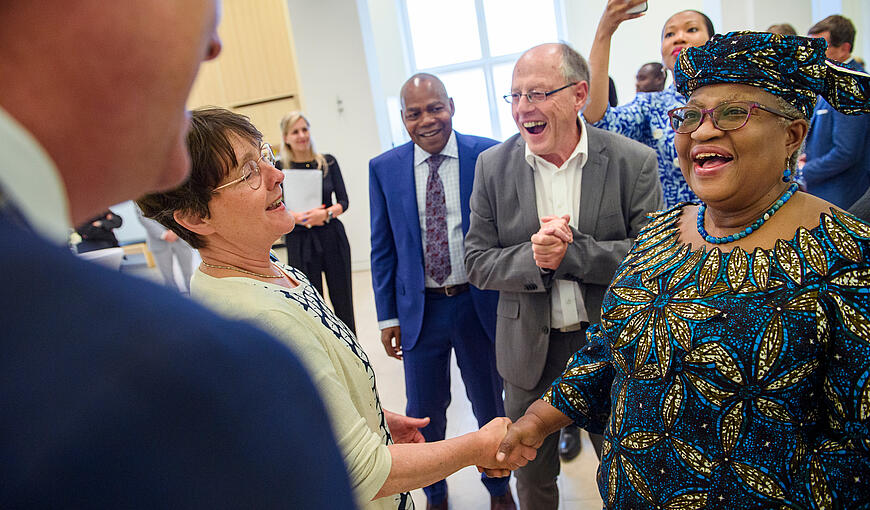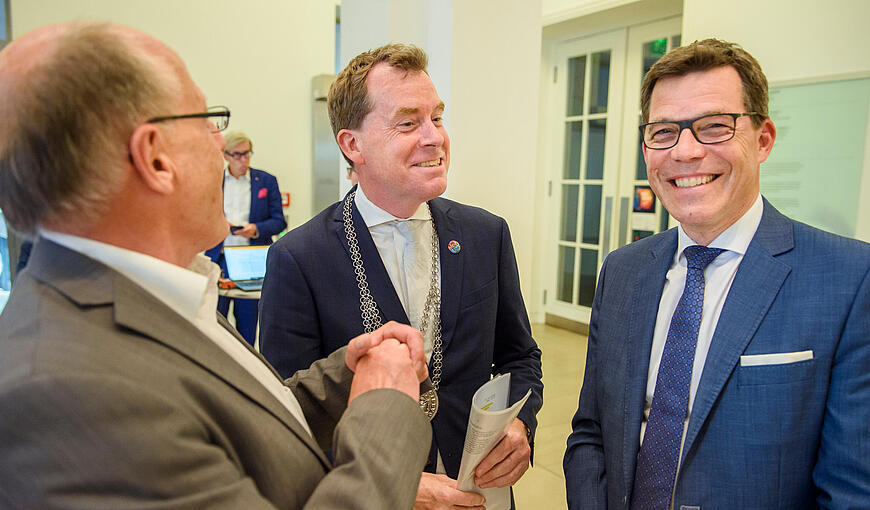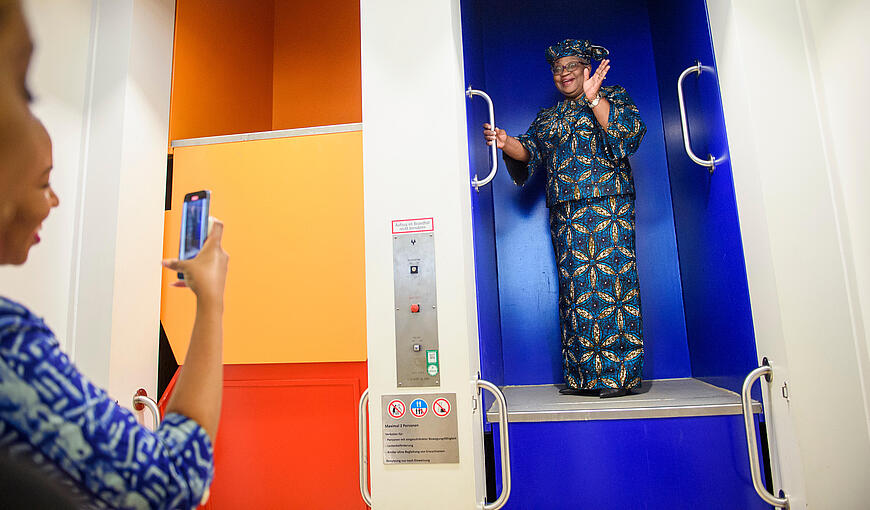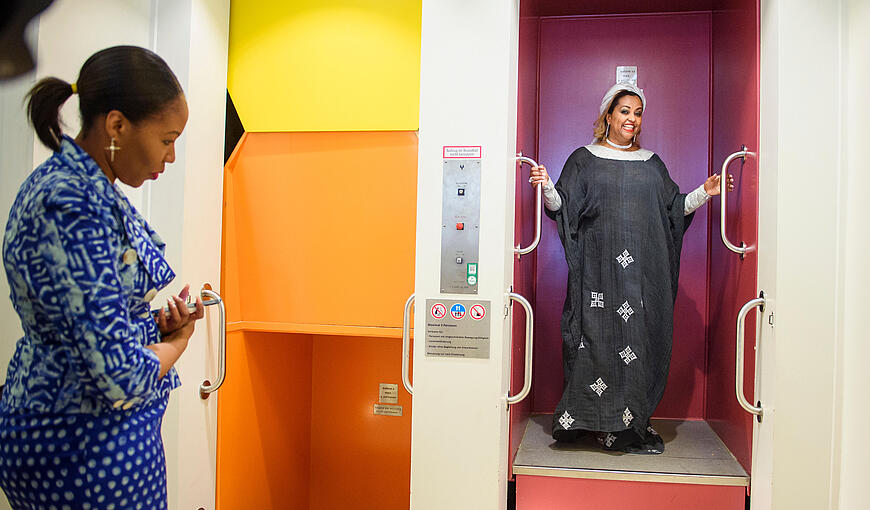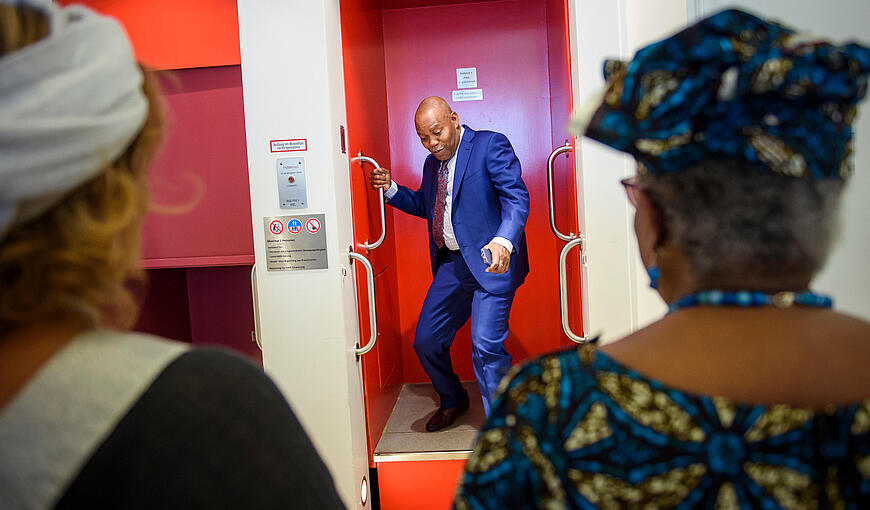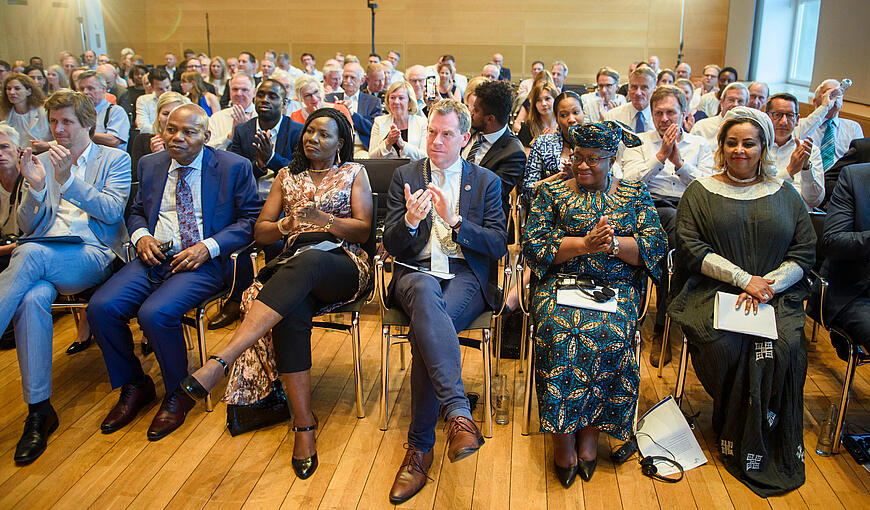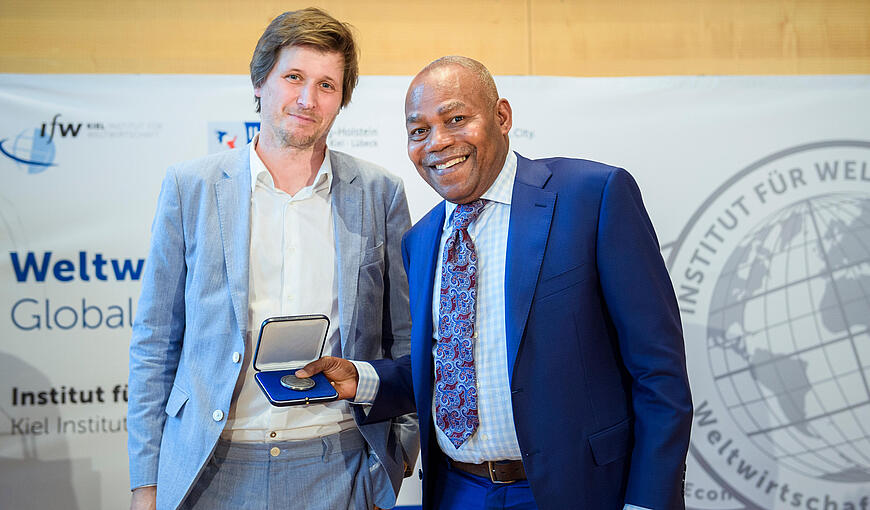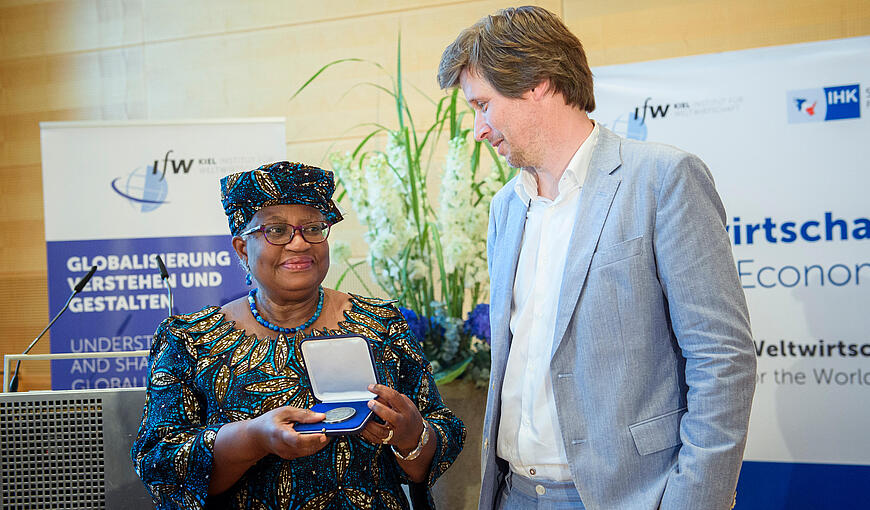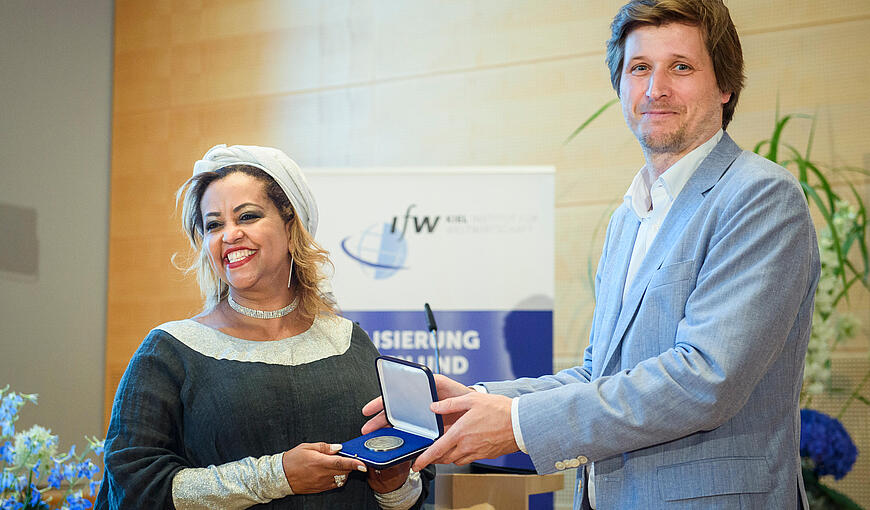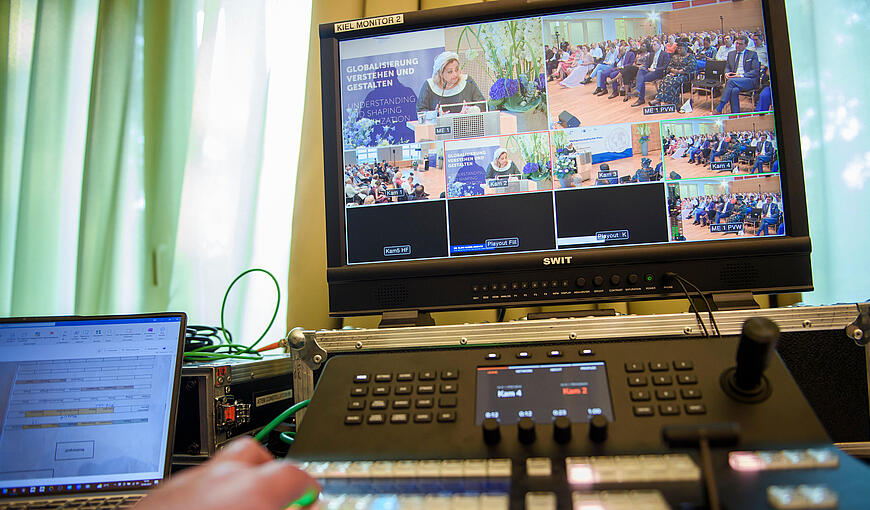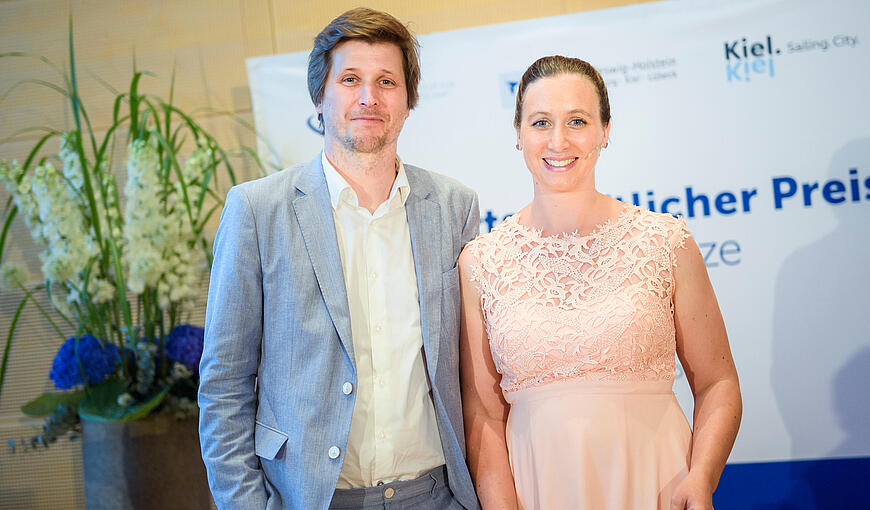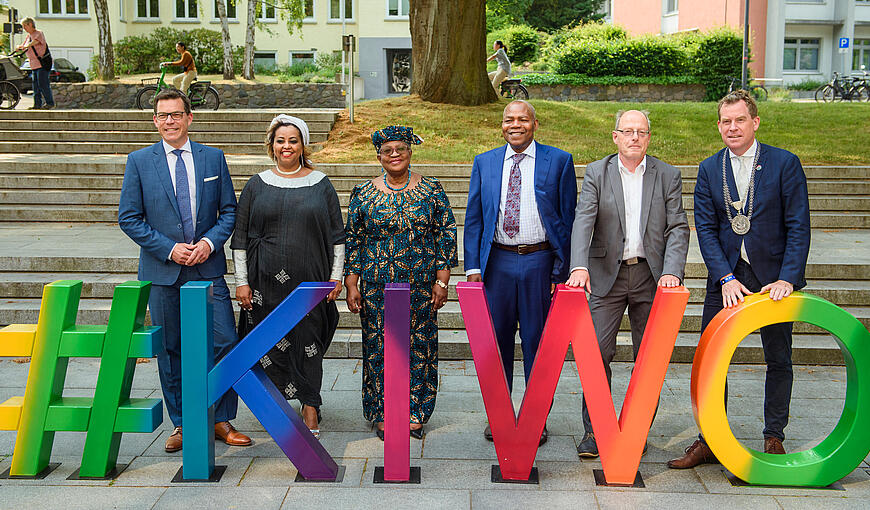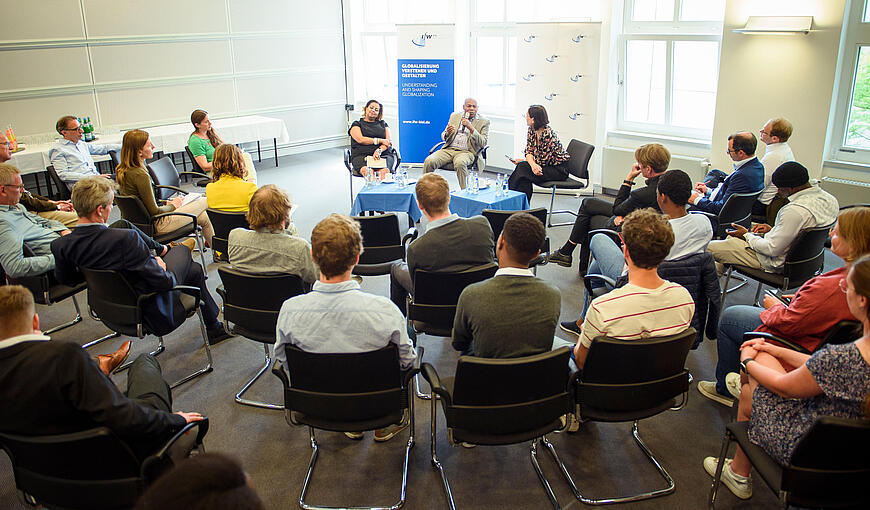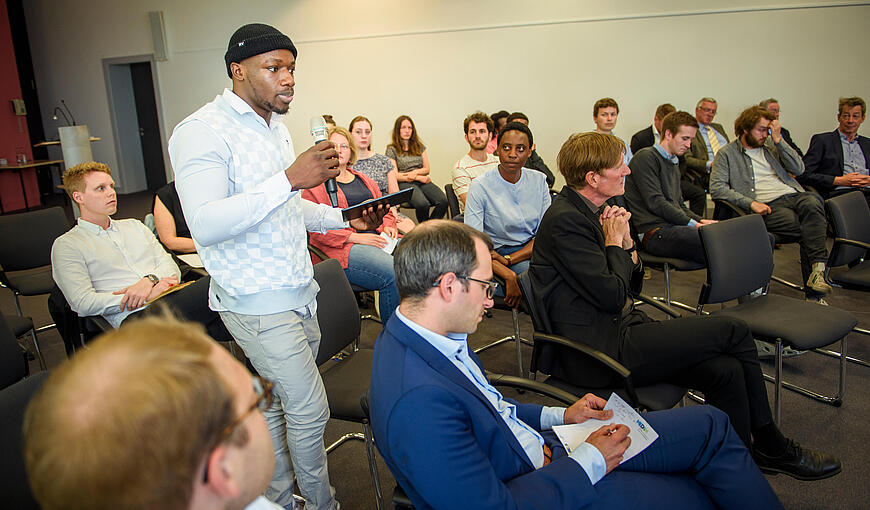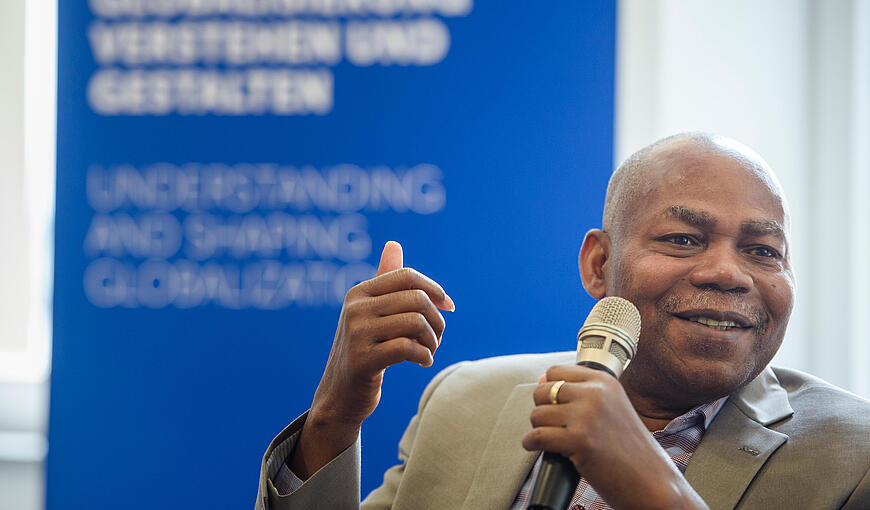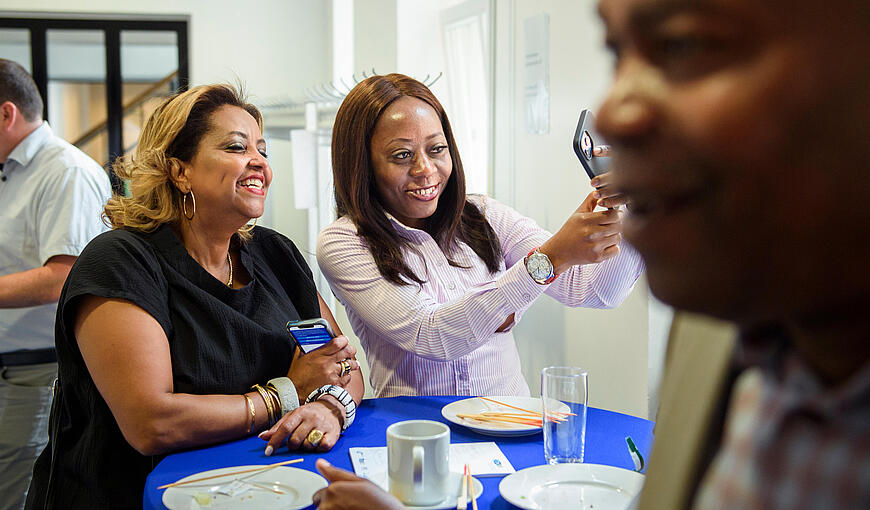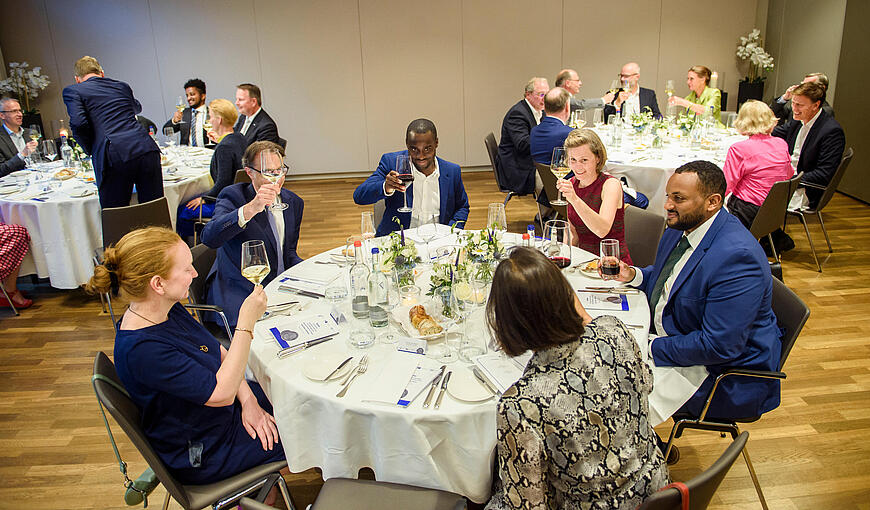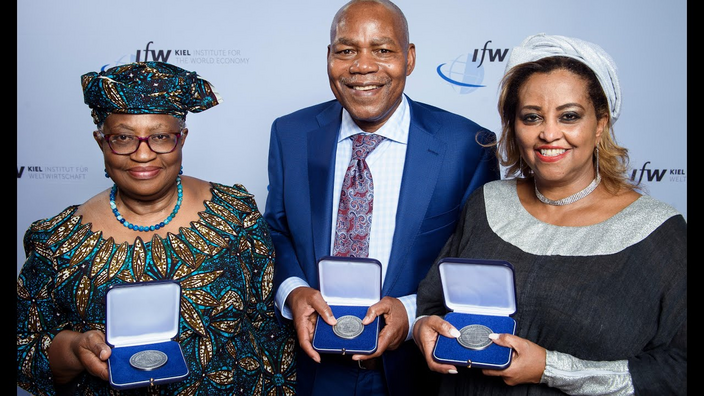Global Economy Prize 2023
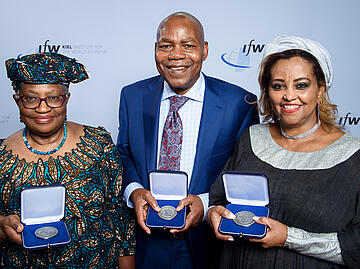
The Global Economy Prize is awarded to pioneers of a cosmopolitan, economically liberal, and public-spirited society. This year, the award focused on the development of Africa.
The Global Economy Prize was awarded for the 18th time by the Kiel Institute for the World Economy together with its partners, the state capital Kiel and the Schleswig-Holstein Chamber of Commerce and Industry.
-
Monica Heinold shakes hands with Ngozi Okonjo-Iweala
-
Jürgen Stehn, Ulf Kämpfer, Knud Hansen
-
On their way to the award ceremony in the paternoster. Ngozi Okonjo-Iweala, ...
-
Eleni Gabre-Madhin, and...
-
Leonard Wantchekon
-
Audience at the prize ceremony
-
Handover of the prize medal to Leonard Wantchekon, ...
-
Ngozi Okonjo-Iweala, and ...
-
Eleni Gabre-Madhin
-
Prize ceremony, production control room
-
Moritz Schularick, Elisabeth Radke
-
Knud Hansen, Eleni Gabre-Madhin, Ngozi Okonjo-Iweala, Leonard Wantchekon, Jürgen Stehn, Ulf Kämpfer
-
Exchange event with the Global Economy Prize winners
-
Student at the exchange event
-
Leonard Wantchekon at the exchange event
-
Selfietime: Eleni Gabre-Madhin with student
-
Celebratory Dinner with the price winners
Award Ceremony Global Economy Prize 2023 - Livestream Replay
Prize Winners
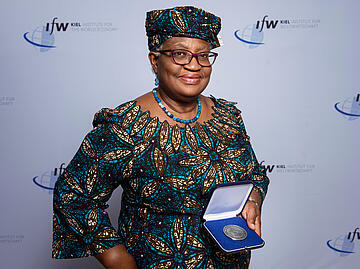
Dr. Ngozi Okonjo-Iweala
Director General, World Trade Organization
The jury's reasoning:
"Dr Ngozi Okonjo-Iweala is a strong and powerful leader, a global finance expert, a renowned economist and an international development professional with over 30 years of experience. She was being key to developing the economic reforms that helped stabilize Nigeria’s economy and improve fiscal transparency. Her strong personal commitment and determination to root out fraudulent schemes that drain the country of resources and deprive the poor of crucial services makes her a veritable vanguard in the fight against corruption. She is a firm believer in the power of trade to lift developing countries out of poverty -especially in the context of multilateralism - and help them achieve robust economic growth and sustainable development. Dr Okonjo-Iweala is a skilled and tenacious negotiator and is considered an effective consensus builder who enjoys the trust of governments and other stakeholders."
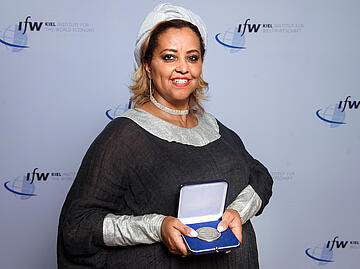
Dr. Eleni Gabre-Madhin
Chief Innovation Officer, United Nations Development Program, Regional Bureau for Africa
The jury's reasoning:
“Eleni Gabre-Madhin is a committed, courageous, far-sighted and socially responsible entrepreneur who, through her innovative initiatives, has helped to improve the living conditions and opportunities of the rural population and numerous young people in several African countries. As founder and head of the Ethiopia Commodity Exchange, she secured the livelihoods of over 15 million smallholder farmers. With eleni LLC, she founded a pioneering company for the development of commodity exchanges in frontier markets in Africa. She founded and led Ethiopia's leading incubator and investor for agribusiness startups, blue moon, and is currently implementing a revolutionary funding initiative for pioneering youth startups in Africa as Chief Innovation Officer of UNDP's African office.”
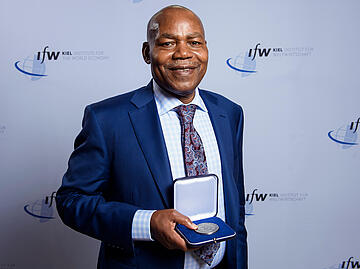
Prof. Leonard Wantchekon, Ph.D.
Founder and President, African School of Economics, and Professor, Princeton University
The jury's reasoning:
“Leonard Wantchekon is not only an outstanding political economist, economic historian, and development economist, but also a far-sighted and assertive scientific entrepreneur. His unique perspective on development economics - not least shaped by his personal background - his innovative scientific methods, and his resulting groundbreaking work published in leading journals have earned him worldwide recognition in the profession. With the African School of Economics (ASE), which he founded and directs, he is opening the way for African students to receive an internationally recognized education in economics. The ASE curriculum reflects Leonard Wantchekon's unique perspective on economic issues by combining rigorous methodological training with multidisciplinary content on Africa's past and present. It thereby provides students with a high level of understanding of development across the continent.”
Program
Joint Welcome Note
Monika Heinold, Deputy Minister President of the State of Schleswig-Holstein
Dr. Ulf Kämpfer, Lord Mayor of the City of Kiel
Knud Hansen, Vice-President Chamber of Industry and Commerce Schleswig-Holstein
Prof. Dr. Moritz Schularick, President Kiel Institute
Opening Address
Prof. Dr. Moritz Schularick, President Kiel Institute (from June 1, 2023)
Musical Intermezzo
Alexandra Rotmann, Vocals
Laudations and Price Award by Prof. Dr. Moritz Schularick to the prize winners:
Prof. Leonard Wantchekon, Ph.D., Founder and President, African School of Economics, and Professor, Princeton University
Dr. Ngozi Okonjo-Iweala, Director General, World Trade Organization
Dr. Eleni Gabre-Madhin, Chief Innovation Officer, United Nations Development Programme, Regional Bureau for Africa
Moderation: Elisabeth Radke, Kiel Institute
Reception
